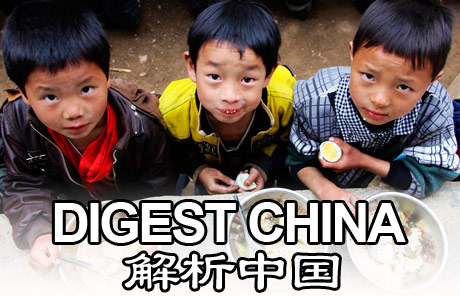"Micro-charity" serves up free lunch
Updated: 2011-09-29 07:31
By Feng Xin and Huang Lan (chinadaily.com.cn)
|
||||||||
Nearly 10,000 children who live in China's poor countryside will no longer have to starve when they go to school, thanks to one man's micro-blogging, which turned into a nationwide charity program in just a few days.
Starting this April, the program called Free Lunch aims to provide kids in rural areas with a free lunchbox that contains an egg, a dish and some rice. These children were able to afford only a few potatoes to school. The Free Lunch Program calls the public to donate 3 yuan, or 40 cents, each day to provide one basic but nutritious school lunch.
In late March, the program's creator, Deng Fei, posted a message on the Chinese micro-blogging platform Weibo, saying he was going to help build a canteen at a primary school in Guizhou province. The post was immediately spread out by his followers and received widespread public support. A few days later, Deng registered the Free Lunch for Children Foundation under the China Social Welfare Education Foundation as one of its special funds. Deng now has nearly 500,000 followers on Weibo.
Before launching the Free Lunch Program, Deng was an investigative reporter for 10 years. He has written more than 100 investigative reports, many of them focusing on children and women's welfare in China.
In September 2010, three members of a family in Jangxi province set themselves on fire to protest the government's demolition of their home. On the way to accept an interview in Beijing, the two sisters were stopped in the airport by local officials. Deng reported live on his micro blog as the story unfolded.
In February, he actively took part in a micro-blog campaign to crack down on child trafficking. He then successfully helped a father find his abducted son. Two months later, his Free Lunch Program again received help from a group of 500 journalists and dozens of media outlets across the country.
While micro-blog based, grass-root charity programs known as "micro-charities" are growing fast in China, a number of long-established governmental charity organizations, like the Red Cross Society of China, are facing severe trust crises. A number of recent scandals have made these organizations a target for public criticism for their improper use of public donations and lack of transparency.
According to the Regulations on Administration of Foundations, there are two sorts of foundations in China: public funds and private funds. Only public funds are allowed to collect money from the public. But in order to become such a foundation or an official branch of the organization, one often has to go through scrutinized application processes and meet difficult prerequisites.
So how does the Free Lunch Program run under the current charity system? How can an ordinary individual become a philanthropist in China? And most of all, how do charities operate through micro blogs? Digest China host Feng Xin invites Deng Fei into the studio.












